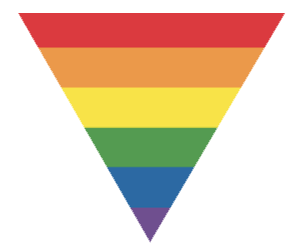Written by Meagan Cumming, MA, RP
One of the most important elements of effective counselling is having a good relationship with your therapist. You deserve to work with someone you feel comfortable, safe, and aligned with, and you have every right to ask your therapist questions to see if they are a good fit for you.
People usually know to ask some generic questions (ex. hourly fee, insurance coverage, availability), but it’s also helpful to gather information about who they are and how they practice. Their responses to these questions will tell you if you would like to work together. If they seem defensive, that’s a red flag. If they are open, engaging, and encourage further questions, that’s a green flag. Here are a few examples:
Where did you receive your education? How long have you worked as a therapist?
If the therapist gives an answer like “I hardly see how that’s relevant, I assure you I am qualified”, that is a red flag. If they answer directly with something like “I studied at (specific place), and have been working with clients since (specific date)”, that is a green flag.
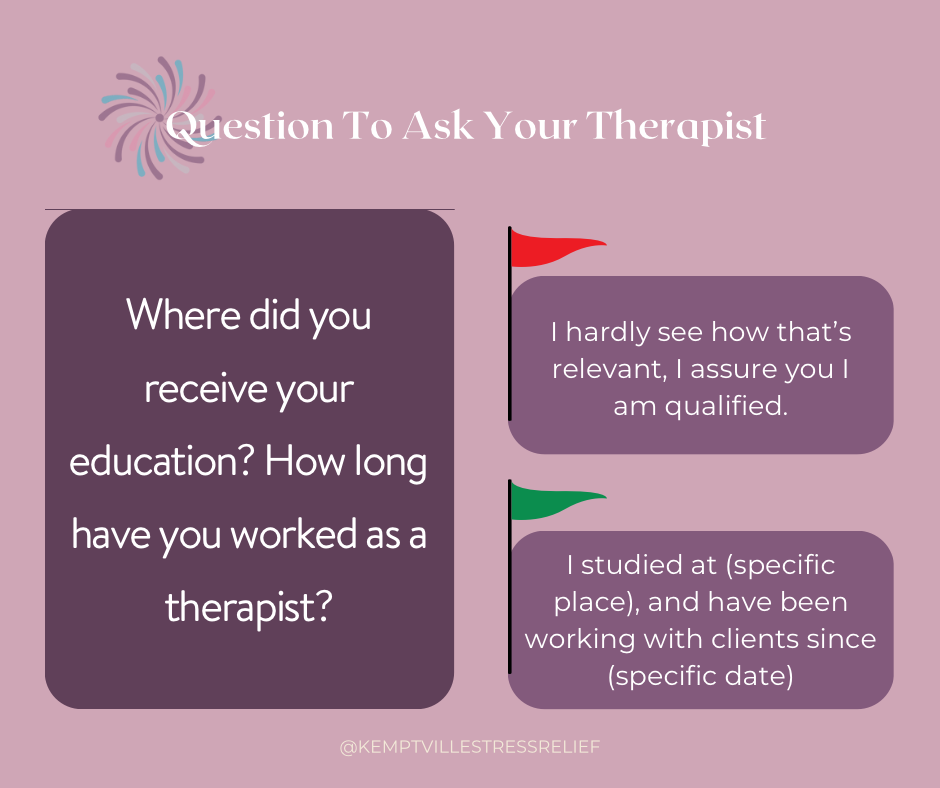
Do you have experience or training in the areas I want to explore?
If the therapist gives an answer like “Of course!” without providing details, this is a red flag. If they answer with something like “Yes, I have worked with this niche since (specific date) and completed (specific training)”, or even “No, I have not worked with your issue specifically. Here are adjacent issues I’ve worked with, how I expect to translate those skills, and here is my plan to ensure your needs are met (ex. consultation, supervision, continued education, even referring to someone else if the issue is outside of their competency)”, these are green flags.
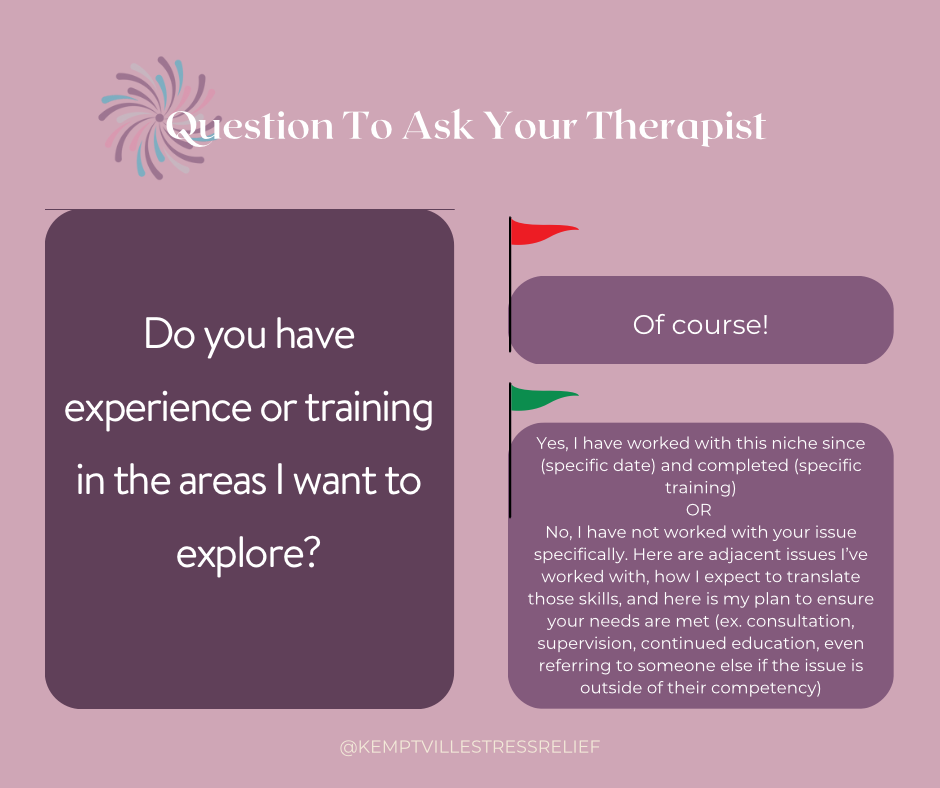
What theoretical orientation do you practice from, and why?
If the therapist gives an answer like “I use only the most up-to-date, evidence-based practices”, this is positive and ethical but doesn’t tell you much about their style. If they answer with something more direct like “I practice from a (specific theoretical orientation, or integration of a few) because (specific answer)”, you can check their explanation against your own internal knowing to see if it is aligned.
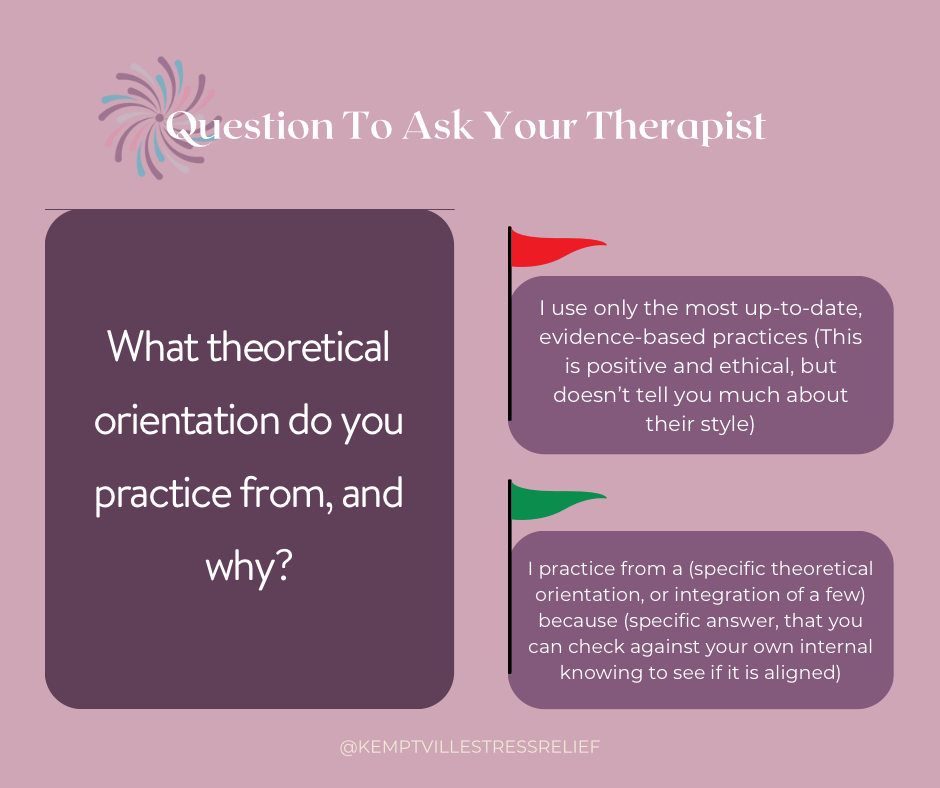
How do you respond to a client challenging you? How do you navigate rupture and repair?
If the therapist gives an answer like “I’ve never experienced that”, this may be information that a client hasn’t felt safe enough to challenge them or express a rupture. If they answer with something like “I believe the client is the expert on their experience, and very much want to hear their feedback about how our work together is progressing and if they feel we are on the right track. If a rupture happens, I consider that a wonderful opportunity to model repair in a safe relationship. It’s also information for me that we’ve built a strong enough relationship for the client to express dissatisfaction or anger to me; overall, a win-win!”, this is a green flag.
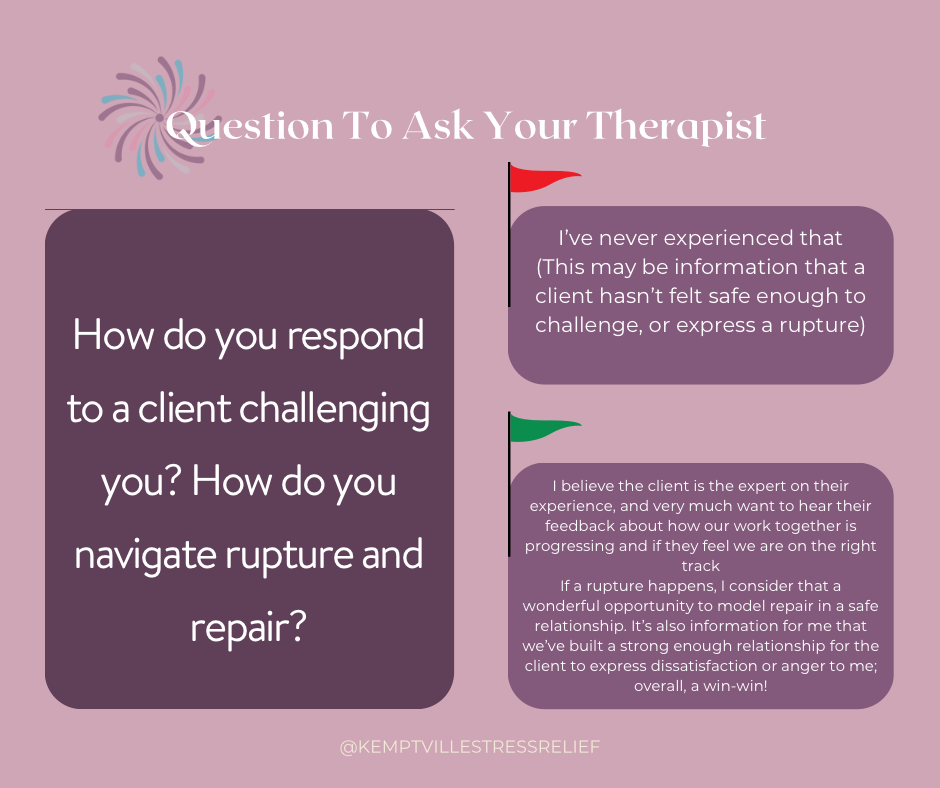
Have you been in therapy yourself? If yes, how has it influenced your work?
If the therapist gives an answer like “I’ve never been to therapy, I don’t need to go”, this is a HUGE red flag! However, if they answer with something like “I am/have been in therapy, and it’s helped me be a better therapist by allowing me to empathize with my clients because I’ve been in their shoes! It’s also important to me to do my own healing work, so that I can ensure I am showing up as my best self for my clients and others in my life”, this is a green flag.
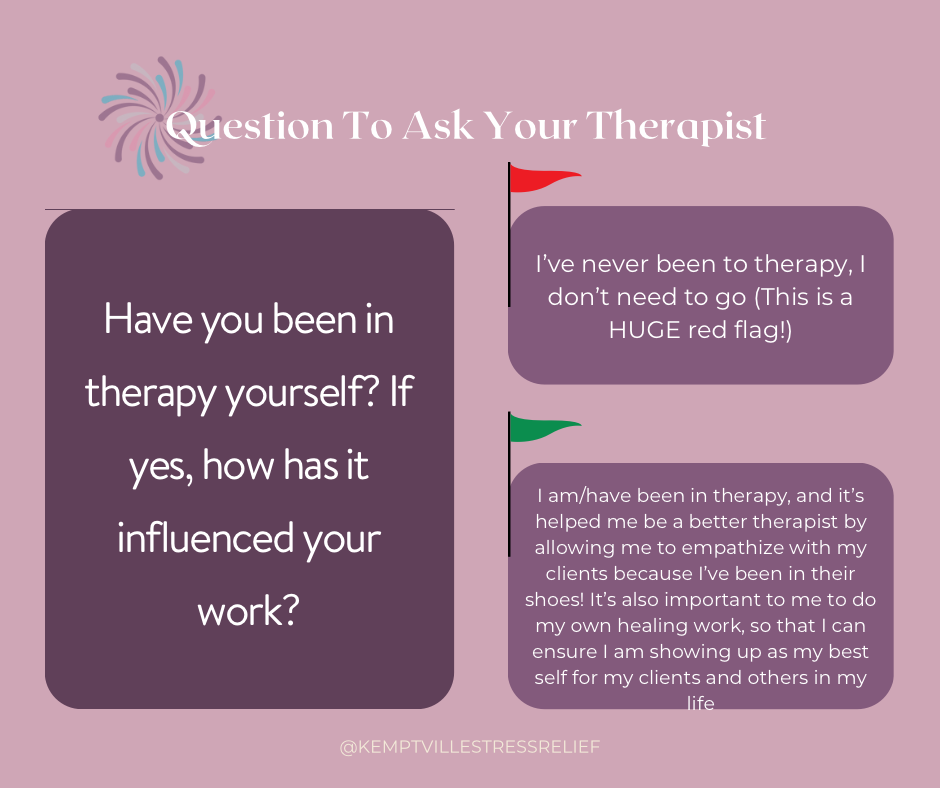
How do you manage the possibility of dual relationships in this small town? How do you ensure my confidentiality will be kept?
If the therapist gives an answer like “I don’t see that being a problem”, that is a red flag. If they answer with something like “I am very aware of the possibility of dual relationships, and hold your right to confidentiality in the highest regard. Here is how I navigate that (specific process)”, that is a green flag.
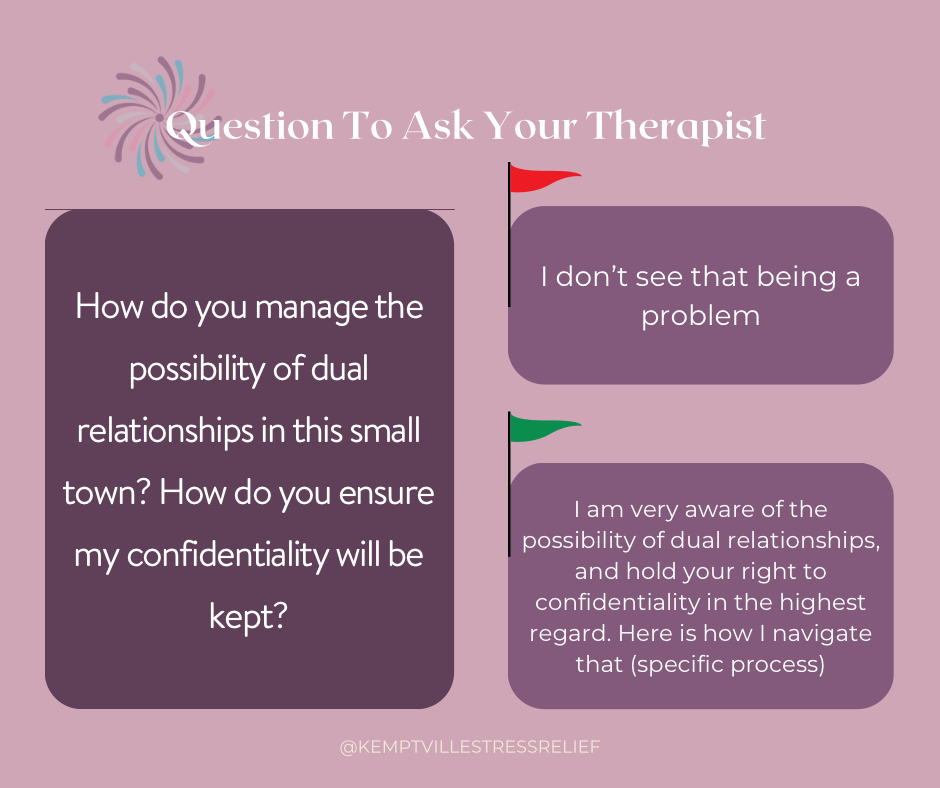
At the KSRC, we have a corkboard in the waiting room listing client’s rights and questions to ask their therapist. We honour the vulnerability and trust that a client brings to the therapeutic relationship, and respect their right to make an informed decision about who they choose to share themselves with. I hope this information empowers you to connect with the right therapist for you!
~ Meagan Cumming

To connect with our centre call us at 613-701-7574, or email at info@ksrc.ca or explore our website to see who you connect to.
